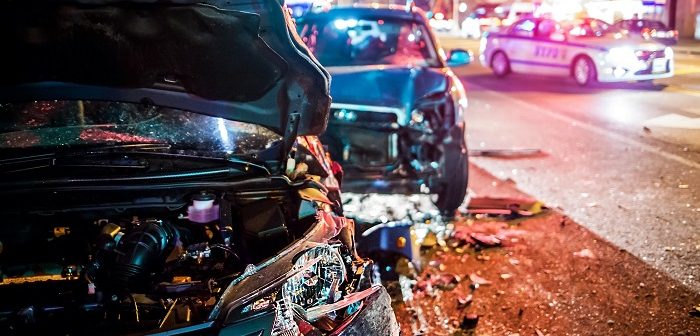Each year, about 6 million car accidents happen in the United States. It’s a scary statistic, given the potential consequences of being involved in a car crash.
No one wants to be in a car accident. Unfortunately, accidents are unpredictable and can happen even to the most careful drivers. Regardless of who is at fault, it’s important to know what to do following a car crash.
In this comprehensive guide, we give you six car crash aftermath steps that can help you get back to your normal life as quickly as possible.
Read on to learn more.
Car Crash Aftermath: What to Do
Fatal car accidents are arguably the most feared occurrences on American roads. But even if you’ve been in a minor accident, a car crash is never an easy experience.
The moments following a car accident can be horrifying. For most people, it isn’t easy to think clearly. The trauma and emotions involved can make you commit mistakes that may adversely affect your health and safety. Failure to act appropriately can also compromise your right to full compensation from your auto insurance company.
It’s why you need to stay calm and keep a cool head, whether it’s you or the other guy who ran the red light. Once you’ve gotten a hold of your emotions, follow the following steps:
- Check Whether Everyone Is Safe
Your health and safety, as well as of every other person involved, trumps anything else. Take the appropriate safety precautions immediately.
Turn on the emergency flashers and exit the car immediately if you can. If there were passengers in your car, check whether they’re okay. If someone is injured, call 911 for the police and an ambulance.
What if everyone seems okay?
You’ll still need to inform the police to get a police report. Never leave the scene before they arrive. Meanwhile, set up flares to alert other road users of the accident. If a police officer does not arrive and the accident happens in Texas, you can download a CR-2 Texas accident report form and fill it out yourself. By doing this, you ensure an official report is created and you demonstrate your due diligence and willingness to cooperate.
- Assess the Scene
As soon as you’re sure that you and the rest are physically safe, start taking inventory of what took place. Take photos of the cars as well as the debris in the scene of the accident. As soon as you’ve done so, you can move the vehicles to a safe place on the roadside if it’s safe to do so.
Be careful not to admit to any wrongdoing or make apologies. This could appear impolite, but once you admit you were wrong, you might hurt your chances in case the case goes to court. Simply express your concern and do the right thing to get medical attention for everyone without admitting any fault.
- Exchange Information With the Other Driver
Once you’ve taken inventory of the accident, be sure to get the necessary information from the other driver, and give them yours as well. This information will be essential if you decide to make claims related to the accident.
Some of the information you may want to collect include:
- The name, phone number, and address of the driver
- Their driver’s license number
- Their insurance information
- Police report number
- Pictures of the scene and damage to the cars or any other property
- Details of the car including year, make, and license plate
- Names and contact information of the police officers at the scene
In case you decide to pursue any legal action in the future, this information will prove extremely helpful.
- Understand What Auto Insurance Options You Have
The insurance coverage options available depend on whose fault the car accident was. Assuming it was the other driver’s fault, their insurance will cover damage to your vehicle and other property up to their policy limit. Their policy will also cover any medical bills and expenses you and your passengers incur as a result of the crash.
In case you carry personal injury protection (PIP) coverage on your insurance, your policy can cover your medical expenses regardless of who is at fault. PIP coverage may even cover any lost wages and services, as well as funeral costs.
- Inform Your Insurance Company
Contact your insurance company as soon as possible to alert them of the accident. Tell them all the details of the crash so they can begin building an insurance claim for you. Often, insurance companies will send an insurance agent to the accident scene to assess it.
Don’t ignore this important step even if you think the accident was minor. Some insurance contracts stipulate that you let your insurance company know of an accident within a reasonable period. Failure to do so can hurt your right to compensation.
But that’s not all.
Calling your insurance company quickly is essential for your health and safety. Keep in mind that some effects of car crashes are not obvious at first, but can cause injuries later that your insurer needs to pay.
- Call a Car Accident Attorney
Now that you’ve alerted your insurance provider, you may be tempted to sit back and wait for compensation. Don’t.
Even if the accident was minor, some major issues could still pop up with time. Besides, your insurance company may decide either not to pay compensation or pay the least possible amount. You want to make sure that you have someone on your side to protect your rights and interests.
That’s where a car accident lawyer comes in. An attorney can help you build a case and ensure that you get your fair compensation.
What if you aren’t interested in compensation? You still need to retain a lawyer in case the other party decides to take you to court, especially if you were at fault in the accident. The earlier you talk to a car accident lawyer, the more time you’ll have to build your case in case need be.
Know What to Do After a Car Accident
A car accident can happen to anyone, so it’s crucial to stay prepared. That’s because the car crash aftermath can have significant effects on your well-being and legal rights. If you follow these points, you’re likely to better handle the situation.
Would you like to read more great content like this? Please keep visiting our blog.





Unfortunately, it is impossible to anticipate fatal car accidents. The sudden loss of a loved one leads to a stupor, and you do not know what to do and how to organize a funeral not for all the money in the world. You can find out here how to average funeral cost, take into account everything you need and save your budget